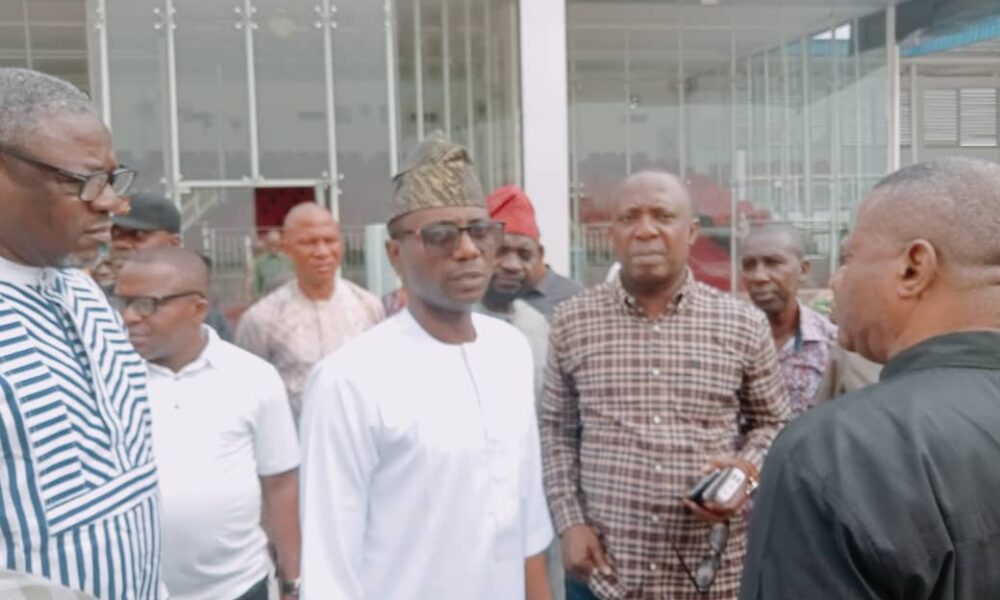***says Kogi is working in terms of infrastructure, Health
By Friday Idachaba, Lokoja.
President of the Nigeria Guild of Editors (NGE), Mr Eze Anaba has charged Governor Ahmed Usman Ododo of Kogi State to consolidate and improve on the level of infrastructural development attained under the last administration of governor Yahaya Bello.

Anaba made the call on Saturday in Okene while on tour of on-going projects by the present administration of Governor Ododo and the Legacy Projects of the immediate past administration of former Governor Yahaya Bello in the state.
Anaba noted that the immediate past administration left a legacy worthy of emulation adding that the good work of former Governor Bello should be sustained by the present administration.
“Government is a continuum. And I would advise the current governor, to follow the footsteps of his predecessor.
“It’s only in that way that the citizenry will benefit. Kogi State will continue to grow and people will reckon that democracy has taken root in Kogi State and the people are benefiting.
“At the end of the day, governance is about the people. So, from what I’ve seen, from what my colleagues saw, I think Kogi is working in terms of infrastructure and in terms of medical care that I saw.
Speaking on the Reference Hospital, Okene, Anaba said, “From a layman’s perspective, I’m not a doctor, but from what the doctors have told me and from what I saw, it’s been hugely impressive.
“The MRI machine, the other laboratory equipments, very, very impressive. And I have to commend the Kogi State government for making this available. And I also suggest that people should put this to test.
“And if these things work, they will save Nigeria a huge sum of money. Recently, the CBN governor told the whole world that medical tourism alone is costing this country fortunes.
“So, if people test and try this, I’m sure it will save this country a lot of money and put our economy in good stead. You also know that healthy citizens make a great country. And I’m sure that if these things continue, with what we have seen here, Nigerians will be happier for it”, he said.
On his general assessment of the legacy and on-going projects, the NGE President said, “I think Kogi is working in terms of infrastructure
“Democracy is about the people and the facilities we have seen, the road construction we saw and the traffic time they have saved people of Kogi State and Nigeria in general…
“That alone will help the country boost our economy and help the citizens. People waste and lose lives in traffic. If the road network is strong like we saw, I am sure Nigeria will be better for it.
“I am highly commending the state government for what me and my team have seen so far* he said. (Ends)


